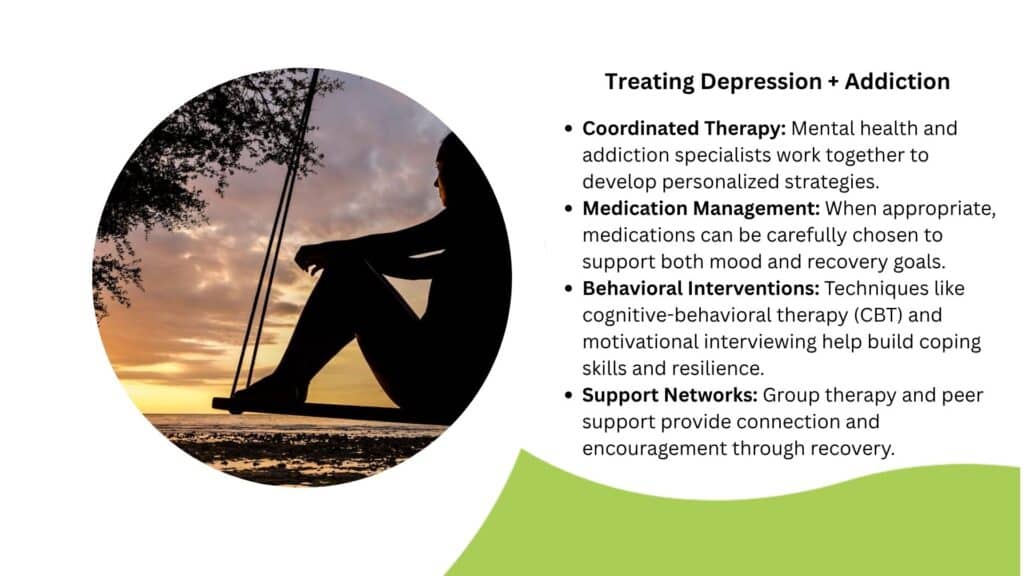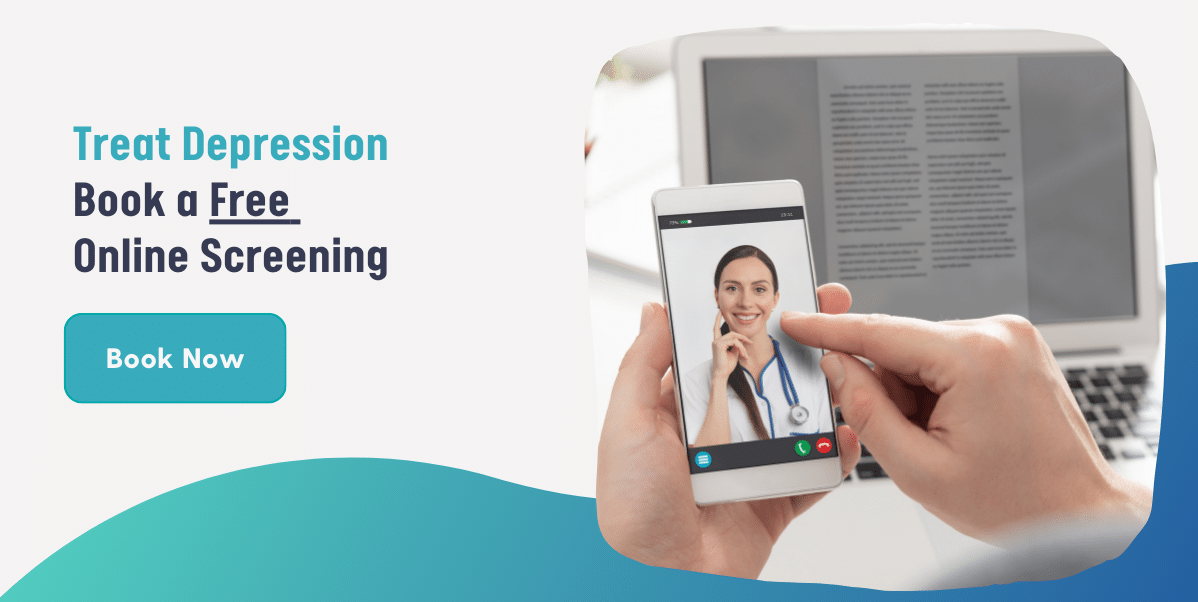
When someone is battling both depression and addiction, the struggle can feel overwhelming. Each condition fuels the other, making recovery far more complex than treating one issue alone. Yet for many, this is the reality—and it demands a comprehensive solution. That’s where integrated care comes in: a compassionate, evidence-based approach that treats both depression and addiction together.
The Overlap Between Depression and Addiction
Depression is more than just sadness. It can drain your energy, cloud your thinking, and leave you feeling numb or hopeless. In an effort to escape these feelings, some turn to alcohol or drugs, looking for temporary relief. But substance use often makes depression worse in the long run.
Conversely, addiction can lead to isolation, shame, and physical health problems—conditions that can trigger or deepen depression. This cyclical pattern creates what’s known as a co-occurring disorder or dual diagnosis, where two conditions interact and intensify each other.
Why Treating Both Conditions at Once Is Critical
Trying to address depression without acknowledging addiction—or vice versa—can hinder recovery. If one condition is left untreated, it often undermines progress on the other. Integrated care breaks this cycle by offering a unified treatment plan that addresses the full picture.
This approach might include:
- Coordinated Therapy: Mental health and addiction specialists work together to develop personalized strategies.
- Medication Management: When appropriate, medications can be carefully chosen to support both mood and recovery goals.
- Behavioral Interventions: Techniques like cognitive-behavioral therapy (CBT) and motivational interviewing help build coping skills and resilience.
- Support Networks: Group therapy and peer support provide connection and encouragement through recovery.

How TMS Fits into Integrated Treatment
Transcranial Magnetic Stimulation (TMS) is an advanced, non-invasive therapy FDA-approved for treatment-resistant depression. TMS uses magnetic pulses to stimulate brain areas linked to mood regulation—without introducing new medications or substances.
For individuals recovering from addiction, this can be especially important. TMS doesn’t interfere with sobriety, has no systemic side effects, and doesn’t carry the risk of dependence. Many patients report improved mood, clarity, and emotional stability, which can make it easier to stay engaged in recovery.
There Is Hope—And There Is Help
If you or someone you love is facing the dual challenge of depression and addiction, know that help is available. Integrated care offers a path forward—one that honors your full experience and supports your healing journey.
Depression and Addiction FAQs
Can I receive TMS therapy while in addiction recovery?
Yes. TMS is non-addictive, non-invasive, and safe to use alongside most recovery plans. It doesn’t interfere with sobriety or medication-assisted treatment.
What is an integrated care program?
Integrated care brings together mental health and addiction treatment, offering a coordinated, whole-person approach to recovery.
Why is it important to treat both depression and addiction at the same time?
When only one condition is treated, the other may cause relapse or block progress. Integrated care ensures both issues are addressed together for lasting results.
Does insurance cover integrated treatment or TMS therapy?
Most major insurance plans cover TMS therapy and aspects of integrated care. Our team can help you verify your benefits and understand your options.
How long does integrated treatment take?
The timeline varies by individual needs, but treatment often involves several weeks or months of support to address both conditions effectively.
What kinds of therapy are used in integrated care?
Cognitive-behavioral therapy, trauma-focused therapy, group counseling, and motivational interviewing are commonly used, often alongside TMS or medication.
Can I start integrated care if I’m still using substances?
Yes. Many programs are designed to help individuals at any stage of readiness. The first step is reaching out for support.
Schedule Your Complimentary TMS Screening Today
At My TMS Therapy, we’re here to help you restore your energy and joy. Our compassionate team will guide you through every step of the process.
Call us at (877) 548-8081 or contact us online to book your screening today.
Sources:
SAMHSA – Integrated Treatment for Co-Occurring Disorders: The Evidence https://library.samhsa.gov/sites/default/files/ebp-kit-the-evidence-10242019.pdf
BMC Psychiatry – “The effectiveness of integrated treatment in patients with substance use disorders co-occurring with anxiety and/or depression”
https://bmcpsychiatry.biomedcentral.com/articles/10.1186/1471-244X-14-67.
NCBI PMC – Integrating Treatment for Co-Occurring Mental Health Conditions
behavioralhealthnews.org


